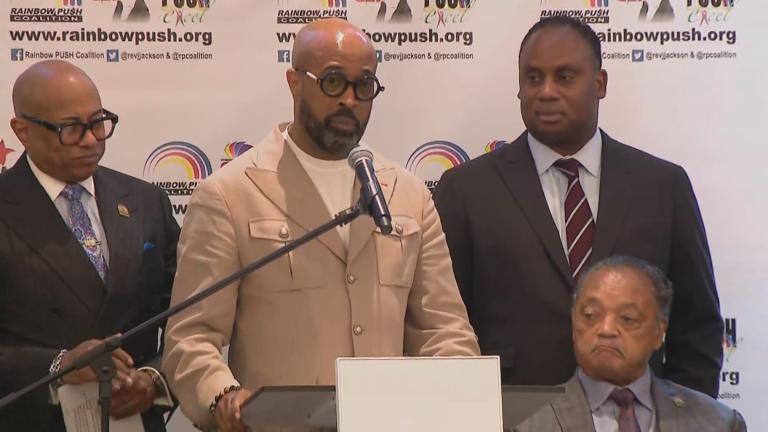The Emmett Till Unsolved Civil Rights Crime Act has allowed the Department of Justice to reexamine the cases of more than 150 African Americans who were killed during the civil rights era.
The effort is also part of a research initiative titled “Un(re)solved.” While the project’s long-term goal is to provide a resolution for these families, it also gives an in-depth look at who these people were through a podcast, documentary and, most recently, an interactive exhibit at the DuSable Museum of African American History in Chicago.
More than 150 names of people killed during the civil rights movement are on display in a special exhibit at the museum. Their lives were cut short due to race-related killings more than 50 years ago, but the lessons learned from their deaths live on.
The interactive exhibit can best be explored through the Un(re)solved app’s guide, which walks visitors through each person’s story. The app requires visitors to scan a QR code that can be found next to each name.
One of the stories is that of Roman Ducksworth Jr., a military police officer who was killed at the age of 27 in Taylorsville, Mississippi.
His son, Cordero Ducksworth, who currently resides in Joliet, said he didn’t learn of the circumstances of his father’s death until he was an adult. He says his mother did not want him or his siblings to grow up having hate or resentment toward white people, so she never told them.
“It was a sacrifice for her, but in order to teach us she had to make that sacrifice,” Ducksworth said. “Black folks today, as well as yesterday, always have to be the bigger person. It shouldn’t be that way, it’s not always acknowledged but we do it without knowing.”
Since finding out about his father’s death, Ducksworth has been determined to get his father’s case reopened. It’s why he’s grateful for the creation of the Un(re)solved project.
He said the exhibit is a way for families to heal from the loss of their loved ones.
“I know I have. There’s a lot of people hurting just trying to get resolution,” Ducksworth said. “The exhibit is good, they should go see it, it’s important. It gives you the past but shows you the future. Do not forget the past, but live for the future. And when you live for the future, don’t have so much animosity and anger. If we can’t do that, we’ll be worse than how we started out.”
Ducksworth says that it’s because of his mother that he has been able to live his life with that mindset. But he has one more way to thank her.
“I want the Taylorsville Police Department, or the state of Mississippi, to say it was not a justified killing. If I could do that, it would make me and my family feel that much better,” he said. “I did what I said to my mother that I was going to try to do. I just wish I could’ve done it before she died.”
Filmmaker and new media artist Tamara Shogaolu’s studio helped create the installation and its interactive elements. She says helping to tell the individual stories is both a way to honor their lives and to highlight the present-day relevance of the cases.
“When I started working on the design of the project, it was amidst the George Floyd protests. I think at that point I really started reflecting on how ... this history of racial violence in America is cyclical, and wanted to make sure that this project didn’t just focus on the violence, but rather acknowledge that these were all different types of individuals who had families and different lives that were cut short because of racism,” Shogaolu said.
The installation is slated to tour museums around the country. It opened Monday at Chicago’s DuSable Museum of African American History.
Perri Irmer, DuSable’s president and CEO, says the stories in the installation are more important than ever.
“While our voting rights are under attack, while history itself is under attack, while our stories are being denied, it’s more important than even for us to bring that information and those facts to the public, and particularly to our youth,” Irmer said.
Video: Perri Irmer, president and CEO of the DuSable Museum, on the new “Un(re)solved” exhibit, which tells the stories of 150 names people killed during the civil rights movement.








